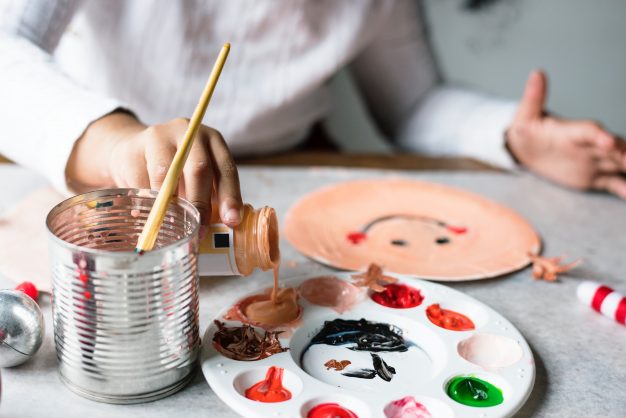
Tackling child mental health with self care
Over the last ten years, there has been a 17 percent increase in anxiety disorders diagnosed in children and adolescents. This is according to the 2018 Children’s Mental Health Report done by the Child Mind Institute.
The report found that 30 percent of young people deal with anxiety, and yet 80 percent do not seek help or support. Even more alarming, in the first year that symptoms of anxiety appear, as little as one percent of young people seek treatment.
Children’s health
Along with all of the effort done to keep children physically healthy – from annual physicals, doctor’s appointments, and vaccinations – there also needs to be an effort to support children’s mental health.
Self-care is a key component in maintaining and sustaining mental health. Making sure that children have good nutrition habits, proper exercise, outlets for personal expression, emotional intelligence and time outdoors are all key components in self-care.
Nutrition has an effect on both mood and well-being, according to research done by Cleveland Clinic’s Wellness Institute. Processed junk food that’s high in refined sugars causes blood pressure fluctuations leading to short-lived bursts of energy followed by a lethargic, irritable crash. ‘Real’ food packed with essential vitamins, fiber, and protein offer sustainable mental and physical energy. ‘Real’ food also contains the nutrients necessary for healthy brain development.
Exercise and nutrition
“We are, quite literally, what we eat,” says Roxanne Sukol in an article exploring the topic on WedMD. Sukol is a preventive medicine specialist at Cleveland Clinic’s Wellness Institute. “When we eat real food that nourishes us, it becomes the protein-building blocks, enzymes, brain tissue, and neurotransmitters that transfer information and signals between various parts of the brain and body.”
Getting regular exercise is also essential in self-care and mental health. Exercise and activity helps to manage stress, deal with depression, and releases feel-good endorphins that promote self-confidence and self esteem. There isn’t a need for children to hit the gym like adults do, but finding outlets for physical activity is a must. Whether it’s joining a sports team or playing with friends offline in real life, instilling active lifestyle habits early on often translates to an active adult life as well.
Creativity and personal expression
Exercise and nutrition have obvious physical health benefits, so it’s easy to see why they’d be essential in mental health as well. By contrast, outlets for personal expression do not have a direct correlation to physical health. However, creativity and personal expression are essential in caring for one’s self and mental health.
Introducing children to ways to channel their creativity beyond staring at a screen benefits their self-esteem, boosts their motivation, and their ability to concentrate. Children should be encouraged to get involved with the arts to find their creative passion, whether it’s painting, dancing, singing, writing, music, or a combination of them all.
Equipping children with emotional intelligence also helps to decrease anxiety, promote proper emotional regulation, and reduce unhealthy behavior. Emotional intelligence arises from teaching children how to recognize and articulate what they’re feeling while also teaching them how to channel their emotions in a healthy manner, like exercise or creative expression, instead of internalizing those feelings.
When children are equipped to recognize and articulate their emotions, they better relate to themselves and others, forming positive, affirming relationships with their peers. Being empowered to talk about emotions can also help in recognizing feelings of depression and anxiety that children may be struggling with.
Teaching children self-care
Spending time outdoors is a happy combination of both the physical aspects of self-care and the non-physical. Spending time outside either running, walking, or enjoying the air is a quality form of physical activity and exercise, but it also has an almost spiritual effect on mental health and wellbeing, according to research. Being outside helps to improve memory, fight depression, and even lower blood pressure.
This makes it important to encourage children to disengage from television, tablets, or phones, and spend time outdoors. In a city, this may be difficult, however, this can be remedied by scheduling time out of the weekend to visit a park or take a family trip.
Children are increasingly struggling with anxiety, depression, and their overall mental health. Trends in kids’ mental health, reported by the Child Mind Institute, show that taking the time to encourage self-care through the methods above is just as important as finding time to care for children’s physical health.



